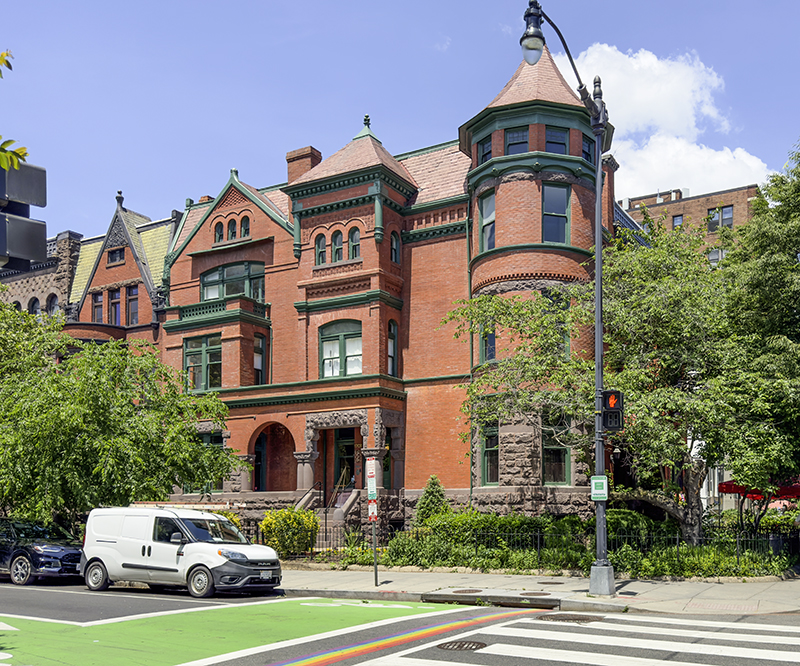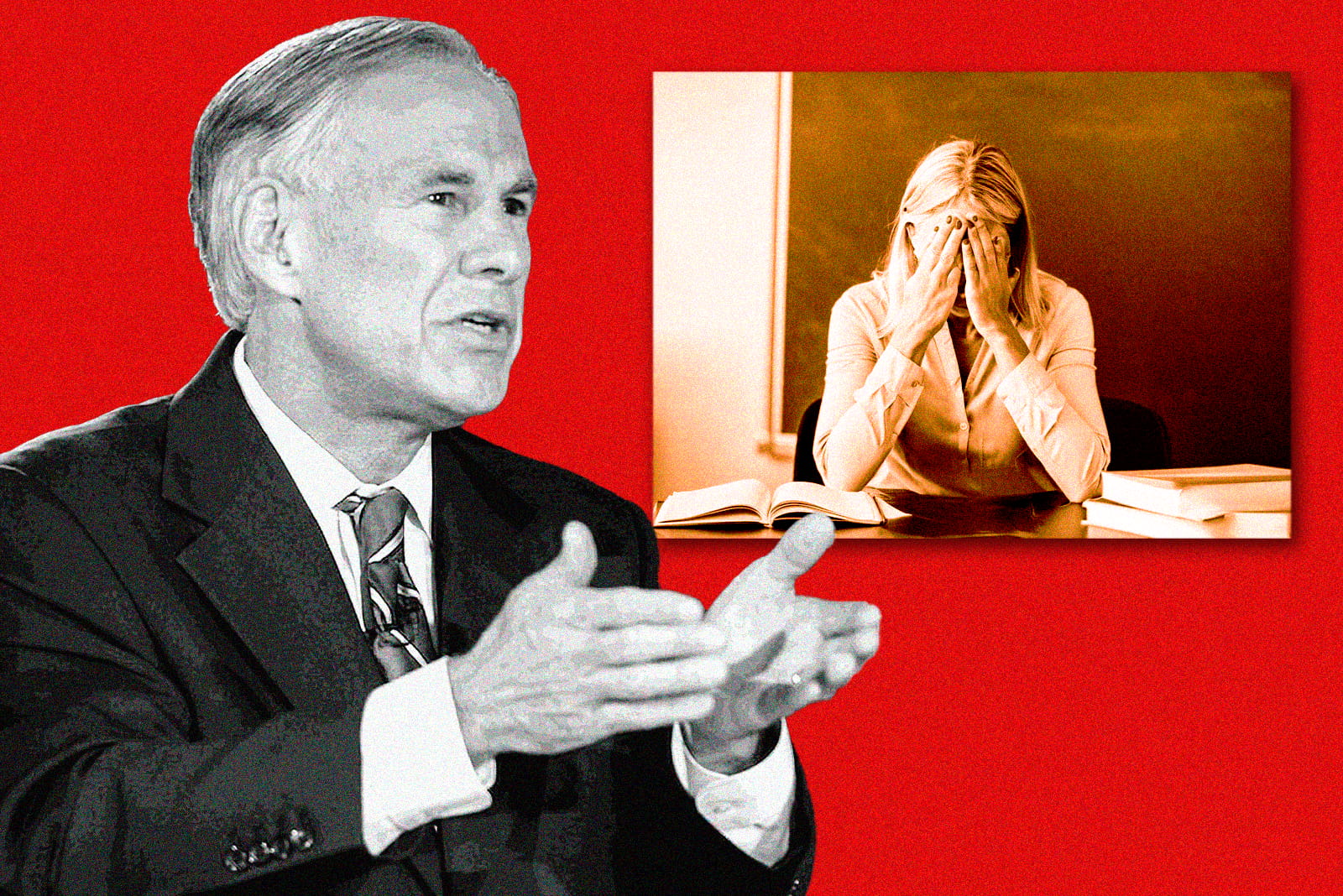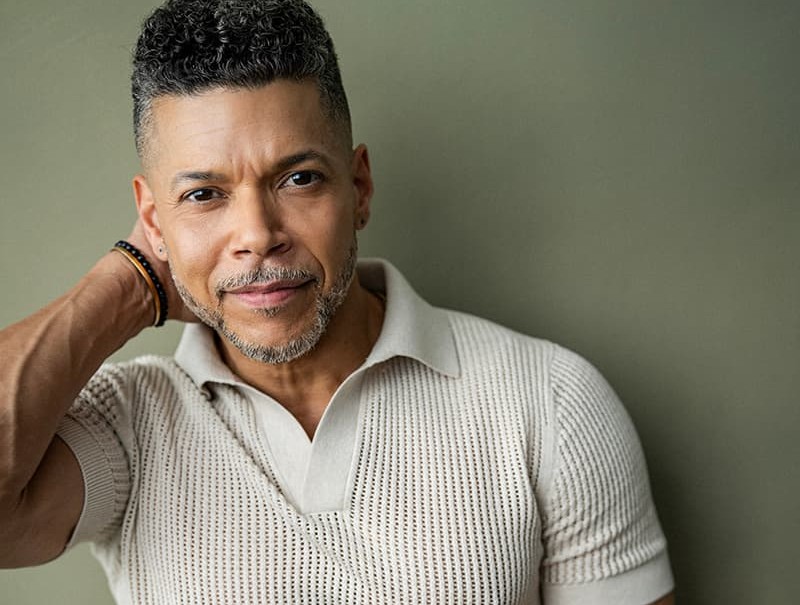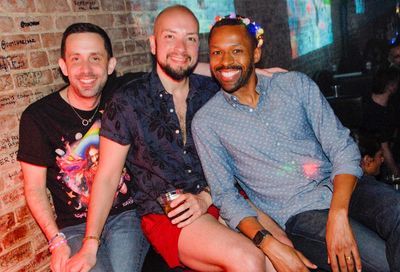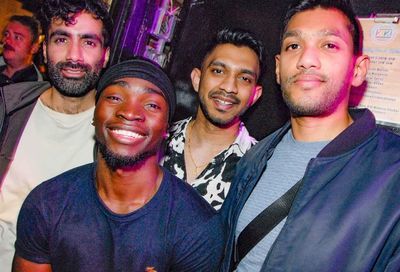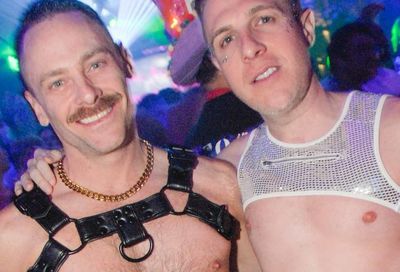The Right Stuff: An Interview with Log Cabin’s Gregory T. Angelo
What does it take to lead one of the LGBTQ community's most controversial organizations? We find out.

“If I hear one more time that LGBT Republicans are like Jews for Hitler or blacks for the KKK, my head will explode,” says Gregory T. Angelo. “Trolls think they’re being clever and they’re really not. I’d appreciate trolls much more if they likened Log Cabin Republicans to White Whales for Ahab.”
As president of Log Cabin Republicans, the nation’s largest organization of LGBTQ Republicans, Angelo has had to develop a thick skin. Facing nearly daily criticism — from Democrats, Republicans, and the media — he has to stand by decisions he feels are in the best interests of Log Cabin’s long-term viability.
“It takes a unique type to willfully take on the responsibility of being the national point person for LGBT Republicans and allies around the United States, because you’re always taking heat from Democrats — and LGBT Democrats, especially,” he says. “Frequently, you’re taking heat from members of your own party or you’re in a position where you have to stand up to members of your own party. That creates a climate where anything and everything I do is necessarily criticized, by either the right or the left. Every time.”
Due to the vast number of people itching to lambaste his actions, Angelo has to pick and choose his battles. But he is always ready to defend his organization, its members, and their political beliefs. He believes that fighting spirit and combative nature are part of Log Cabin’s DNA, dating back to its inception 40 years ago.
“There are times that we have fought the most bare-knuckle brawls in D.C. that one can see,” he says. “The battles that we had in the past with the American Conservative Union, that have now led to a very fruitful relationship between the two of us. The fight that Log Cabin Republicans waged in the aftermath of the passage of the GOP platform in 2016. The fight that our Texas chapter has waged to participate formally in the Texas GOP Convention. These are all battles and they’re not easy.”
Fighting those battles comes naturally to Angelo. Born in Long Island and raised in the Northeast, he has always been “something of a go-getter.”
“When I was in fifth grade, I ran for president of my class, and really made a point of going all-out in my campaign,” he says. “I had a campaign manager. I had friends holding up this American flag behind me as I gave my closing speech, imploring people to vote for me for fifth-grade class president, and I won in a landslide.”
A product of the Catholic school system, Angelo’s faith — though briefly shaken in his twenties — hasn’t conflicted with his sexuality. When he found his way back to Christianity, it wasn’t through the Catholic church, but in a Protestant denomination in New York. There, he found like-minded conservatives who “welcomed me for who I was in all ways.”
“Marble Church was known for being fairly conservative, but in the 1990s, when the HIV and AIDS epidemic was breaking out in New York, the then-senior minister, Dr. Arthur Caliandro, opened the church’s doors to gay men for prayer,” Angelo says. “There was and remains what they call the GIFTS ministry that’s all about LGBT individuals connecting on a religious level as people of faith. It’s challenging to find a church like that anywhere in the United States that is openly welcoming of LGBT individuals, but that does not betray a liberal philosophy in its preaching.”
On Wednesday, Sept. 27, Log Cabin will celebrate the 40th anniversary of its founding at its Spirit of Lincoln Dinner, with former Hewlett-Packard CEO and 2016 presidential candidate Carly Fiorina giving the keynote address. The annual event brings together more than 300 LGBTQ Republicans and allies, as well as pro-LGBTQ GOP members of Congress, with whom Log Cabin has strong working relationships.
“If the last 40 years has taught me anything, it is that historically, any achievements toward LGBTQ equality that are to be realized require cooperation with and work of Log Cabin Republicans,” Angelo says. “What is undeniable is that every one of the major federal achievements in LGBT equality have had the fingerprints of Log Cabin Republicans on them. That is everything from the work that occurred at the founding of this organization, fighting against passage of the Briggs Initiative, the work Log Cabin Republicans has done in the areas of combating HIV and AIDS, the repeal of ‘Don’t Ask, Don’t Tell,’ the passage of marriage equality, and even the passage of the Employment Non-Discrimination Act in the House in 2007 and the Senate in 2013. All would not have been possible without the work of Log Cabin Republicans, in concert with other LGBTQ advocates.”
Angelo refutes the idea that supporting Republican candidates and conservative values is incompatible with being LGBTQ. He rejects the suggestion that Log Cabin needs to spend all of its time chastising and denouncing those in the GOP who hold more rigid views on sexuality or LGBTQ inclusion.
“I look at the Democratic Party’s platform and say, ‘Great, okay. They support marriage equality, and they recognize LGBT individuals in an explicit manner, but that’s it,'” Angelo says. “The overwhelming preponderance of the remainder of the Democratic Party’s platform are things that I most definitely do not agree with.
“But for so many on the left, if you’re gay you can only care about federal LGBT non-discrimination legislation and marriage equality. Or, at the very least, you have to care the most about those two things. And any candidate or any political party that isn’t in complete agreement with them is not worthy of your support. And that’s just preposterous.”

METRO WEEKLY: How did you first get involved with the Log Cabin Republicans?
GREGORY T. ANGELO: I went to my first meeting in March of 2008 at the behest of a friend from high school. He forwarded an email from the Young Republicans of New York with a five-word message: “Check out Thirsty Thursday, bro.” At the bottom of the email, there was a section that listed Republican events at affiliate organizations. It said, “Log Cabin Republicans, monthly happy hour, Thirsty Thursday.”
I went not knowing what to expect, and part of me was ready to just turn around and leave if I found an organization that was not to my liking, but that’s not the case. I quickly found a group of men and women who felt like a second family. We saw eye to eye on political ideologies, we had discussions about Bill O’Reilly’s “Talking Points Memo,” and were getting into deep discussions about the 2008 election.
Feeling like I had met a second family, I wanted to assist this organization as best I could. I was working in public relations, and started volunteering whatever PR expertise I could offer, because I thought Log Cabin was doing good work.
MW: When did you decide to take a leadership role?
ANGELO: In early 2009, the then-chairman of the Log Cabin Republicans of New York State PAC had indicated that he would be moving on. At the time, there was no one interested in taking on all the responsibility involved with political fundraising on a state level. But the bylaws allowed the national president of Log Cabin Republicans to appoint a state chairman in the absence of any volunteers, so I was named chairman in early 2009.
In 2008, there was not a tremendous amount of enthusiasm to vote Republican. John McCain ran as competitive a race as he could, but the odds-on thinking was that after eight years of a George W. Bush presidency, America wanted a Democrat. It would have been far easier for me to go to the other side, and I had not been politically involved to that point. I had also not been registered with any political party. I tell people that I was not always a Republican, but I was never a Democrat. When I registered to vote, I registered as someone who was politically unaffiliated, but nonetheless my political ideologies and my voting patterns were always center-right.
MW: When did you realize that you had those political beliefs?
ANGELO: I think it’s always who I was. I always leaned to the conservative side of thinking, the conservative side of voting, and it was always conservative candidates that inspired me. I definitely had my opinions on a lot of stuff. I would drive boyfriends nuts because I would insist on watching The O’Reilly Factor at 8 p.m. every night, and was always a newshound. I was always consuming news whenever I had the chance. That’s still the case.
MW: What specifically appealed to you?
ANGELO: It’s not so much the appeal of conservatism as it is seeing what conservatism stands for, by recognizing the absurdities that are the natural end of following liberal thinking to its terminus.
The groupthink that is involved in liberalism, the fact that there is an extreme litmus test and it’s growing ever more extreme among Democrats and hyper-progressives when it comes to toeing a party line. People make a big deal of the GOP platform, but I have found far more individuals who have differences and disagreements with the GOP platform than I do those of the Democratic Party, who demand that members pledge allegiance in a doctrinaire manner to every tenet in that party’s platform.
I have never been a fan of identity politics. You see that in stark relief on the Democratic side. Despite differences I might have with the Republican Party’s platform on LGBT issues, I look at the GOP platform and I see myself in agreement with 90 to 95 percent of the party’s core principles.
MW: Let’s get personal for a moment. When did you first realize you were gay?
ANGELO: I think you find that when you come out, you look back at your life, and you say, “Yeah, I was always gay. There were always signs that pointed to me being gay from a young age.” I always felt a little different than the other guys, and wasn’t exactly able to put my finger on it until probably my junior year of college, where I realized that the feelings that I have that made me different were rooted in attractions that I had to other men.
This was, of course, complicated by in some ways the Catholic upbringing that I had and the Catholic university that I was attending. At the time, the school did not recognize the LGBT group on campus. It was eternally the source of debate in the few meetings I went to, how we can get the school to recognize us.
Maybe this betrays my conservative thinking even at the time. After I came out, I didn’t want to sit around having a pity party about why the school didn’t recognize the LGBT group on campus. I didn’t need Boston College to validate me by certifying a club for LGBT individuals. I wanted to be out and celebrate who I was and the fact I was able to finally be out as a gay man.
MW: Who did you come out to first?
ANGELO: There was a party that I went to at another university while I was a junior, and got into a little mischief at that event. I came back to Boston College and asked my best friend Mike if my making out with another guy meant something. He said, “Probably.”
At the time, I was still very afraid of what coming out would mean to me, professionally, personally. Most of my friends were — and still are — straight guys, and I was very concerned with the way my friends would react if they found out that one of their best friends was gay. I struggled with this throughout my junior year, and determined that I didn’t want to live my last year at university in silence, or in shame, or in secret, or hiding who I was from people who were dear to me. I figured I should just rip the bandaid off and let the chips fall where they may.
When I came back to campus for my senior year, I pulled my three roommates aside. Everyone was hanging out, and I said, “Guys, come to the living room. There’s something I want to tell you.” One of my buddies, Tom, said, “Does Greg want to tell us he’s gay or something?” That’s exactly what I did. They were all totally cool with it — I still remain friends with those guys.
My buddy Jim cut the tension in the room by saying, “It’s interesting that you chose this moment to come out forever because my father asked me over the summer, ‘What would you do if you found out that one of your friends was gay?’ I thought about it, and I told my dad that it wouldn’t change anything. Now, Greg, I can say that I was 100 percent right. Nothing has changed between us. I still hate you just as much as I always did.”
MW: When did you come out to your family?
ANGELO: That summer before my senior year at university I came out to my sister. She had told me that she had her suspicions anyway, but was very accepting. I didn’t come out to my parents. I had trepidation about the way they would react if they learned that their son was gay. In some ways, those reservations were proven to be very legitimate.
During that time, I had a boyfriend, and the two of us had resolved to spend New Year’s together. Over the course of the Christmas vacation, my father and I were just hanging around and he had asked me, very causally and nonchalantly, “What are your plans for New Year’s?” I said, “My friend Junior and I are going to a nightclub in Boston that’s called The Machine.” I went to Boston and had a great time. Then I went back to school.
Shortly before classes began, my phone rang at school. It was my father. He asked if I knew that the club, The Machine, was a gay nightclub. I said, “Yes.” He asked me if the guy who I went to the nightclub with was gay. I paused for a second and said, “Yes.” Then he asked me, “Are you gay?” I paused again. I had all these thoughts running through my head: “Do I try to keep up a charade? Do I lie about this or do I just come clean?” After that long pause, I said, “Yes,” and he hung up the phone. I sat alone in my room for maybe a minute. It felt like an eternity.
Then the phone rang again. It was my mother. She was in tears. She was beside herself, exceptionally upset that her son was gay. They came to Boston for my commencement ceremony, but we shared very few words there. A couple of weeks later, I received a letter in the mail from my father outlining all the reasons why I was making “a terrible choice.” Thinking back, part of me wishes I saved that letter, but at the time I was just so enraged I remember just tearing it up and throwing it away.
MW: Did you ever make peace with your parents?
ANGELO: Two years later, I was in a serious relationship with someone who I had been with for several months. We were living together in New York City. Out of the blue, my mother called up and told me that she and my father were going to be in town to go see a Broadway show and asked me if “my friend and I” would be interested in meeting them for brunch. We did. My father’s background is finance and the guy who I was dating at the time worked in the financial industry in risk management. The two of them got along swimmingly.
I think at that moment that’s when my parents saw that if you were a gay man it was not your destiny to be a window dresser or a hairstylist as your greatest career aspirations, that it was possible for same-sex couples to be in committed relationships and that gay people are just as complex and lead lives that are just as rich as heterosexual individuals. In other words, over the course of that one brunch, my parents had numerous stereotypes shattered.
That showed me, in a very personal way, years before I got involved with Log Cabin Republicans, that these types of personal interactions and telling our stories are ultimately what moves hearts and minds, especially what moves the hearts and minds of conservatives.
MW: As the public face of the Log Cabin Republicans, has there been any criticism or personal attacks that have made you angry or outraged?
ANGELO: Well, it’s always a challenge. My job is often the most frustrating, sometimes the most thrilling. And it’s those thrilling moments that make the frustrating stretches worthwhile. It takes a unique type to willfully take on the responsibility of being the national point person for LGBT Republicans and allies around the United States, because you’re always taking heat from Democrats and LGBT Democrats, especially. Frequently, you’re taking heat from members of your own party or you’re in a position where you have to stand up to members of your own party. That creates a climate where anything and everything I do is necessarily criticized, by either the right or the left. Every time.
Every time I make a decision there will be criticism and there will be individuals who don’t like what I do, or what I say, or the position that this organization takes. Tough. That comes with the territory, right? In many respects, the work that I did as the Chairman of Log Cabin Republicans of New York State was something of a dress rehearsal for the work that I’m doing here at Log Cabin Republicans National. It’s allowed me to get my feet wet in a major media market at a time when Log Cabin Republicans was pushing for massive legislation in the state, the marriage equality bill. Those lessons did not go unlearned. I brought all of that experience as a volunteer to this position now and I learned very early on not to personalize things that are said — about the organization or even about me. Everyone always thinks they can do it better until they’re in the hot seat.
MW: Was there ever an instance where you were the victim of an ad hominem attack and you were like, “That’s kind of out of bounds or unrelated to the topic at hand?”
ANGELO: Frequently. But I’ve become a big fan of the mute feature on Twitter. If Twitter went away tomorrow, would it really be a loss to society? Probably not. There would be one less source of entertaining amusement, but there’d also be one less source of trolling. I don’t know if that would necessarily be a bad thing.
MW: Has social media made your job in the political sphere worse?
ANGELO: No, I actually think it’s made it easier. Over the last four-and-a-half years, there’s been a major explosion in the facility of social media. It is far easier for us to get our message out, get it out quickly, and get it out directly to our members and supporters through social media than the more cumbersome vehicles of press releases and email. We still use those things, but I have found social media to be a far greater benefit to this organization than a detriment. If having to deal with trolls is the price we have to pay, I’m willing to do that.
MW: Have you ever felt pressure to toe the Republican party line or support the Trump administration?
ANGELO: My only loyalty is to Log Cabin Republicans. My job is President of Log Cabin Republicans and my duty is to represent this organization. One of the things that we said when the National Board decided to withhold endorsement from Trump was that, were he to become elected, we would work with him whenever possible. And we have remained true to that vow. In fact, I would argue that there’s no organization that’s more consistent than Log Cabin Republicans in that regard, because whether it’s the Human Rights Campaign and their commitment to — quote — defy every action of this administration or the greater LGBT community that seems devoted to this #Resist movement, I think that does a disservice to this community.
This notion that in all times and in all ways President Trump and the Trump administration is working against the interest of LGBT individuals is just absurd on its face. It de-legitimizes criticism in those moments when the administration does take actions that are directly detrimental to the LGBT community. This administration has taken measures that are undeniably pro-LGBT and I think that they deserve praise when they do that.
MW: What has Trump done that’s pro-LGBTQ?
ANGELO: When President Trump not only maintained President Obama’s LGBT non-discrimination executive order in federal hiring and contracting, but made a point of proclaiming it. That was something that Log Cabin Republicans was very heavily invested in, having worked with the transition team in outlining the reasons why we felt it was important to maintain that order.
MW: What anti-LGBTQ moments stand out thus far?
ANGELO: A time when I felt the administration was not acting in the best interests of the LGBT community was President Trump’s tweets calling for a ban on transgender service members in the military “in any capacity.” I think there likely should be some more nuance there than “any capacity.” Excluding the entire transgender community from service in the military simply because of who they are is not something that is acting in the best interests of the LGBT community, nor is it acting in the best interests of the military.
Also, the dismissal of transgender service members who came out when they were allowed to do so, who would now be facing a punishment simply for following the rules, just seemed to me to be something that wasn’t only a negative for the transgender community, but perplexing.
MW: Critics say Trump is filling his administration with people who are hostile to the LGBTQ community, and they are influencing his decisions.
ANGELO: That’s confirmation bias. If you are already of the mindset that President Trump is anti-LGBT and everything he does is anti-LGBT, then you will find actions that the administration has taken that confirm your preconception and you will overlook those that do not.
Are there individuals that are part of the Trump administration who have taken anti-LGBT positions and actions in the past? Yes. But are there people who have taken pro-LGBT positions and come from an allied mindset? Most definitely.
If you’re going to call out the administration for its appointments of individuals who have an anti-LGBT record, then you also need to lift up those people who the administration has appointed that do have pro-LGBT records. I will point to Secretary DeVos, who Log Cabin Republicans stood in support of during her confirmation process. Secretary Rex Tillerson, who has been very vocal in support of the LGBT community since becoming the Secretary of State. Small Business Administrator Linda McMahon is someone who is very outspoken in support of the LGBT community. Then there are others who are closely involved with President Trump, either advisors like Peter Thiel, or Rick Grenell, who was just nominated for Ambassador to Germany. We have one of our Log Cabin members, James Abbott, who was just nominated to the Labor Board.
MW: Then why are so many LGBTQ people angry with this administration?
ANGELO: It’s because they couldn’t have imagined — and they still can’t accept — that Donald Trump beat Hillary Clinton. It was always something that we were prepared for. But what do you do when you have refused to work with the other side, when the candidate that you have invested millions of dollars and thousands of volunteer man-hours in, comes up short? Well, you protest, you vow to defy, and you seek to invalidate a perfectly lawful election.
MW: Some LGBTQ critics see people like Mike Pence as influencing Trump to pursue policies or hire people that harm the LGBTQ community. Do you think there is an element of their criticism that might be justified?
ANGELO: No, I don’t. I think that what President Trump is trying to do, at times in a clumsy but nonetheless admirable way, is strike a balance between LGBT equality and religious liberty. But he doesn’t need to strike a balance at all. Looking at the exit polls, Trump got something like 80 percent of the evangelical Christian vote and 14 percent of the LGBT vote. If ever there was a constituency that Trump should be overly loyal to, it should be the evangelical community. If ever there was the constituency that Trump could easily throw under the bus, it would be the LGBT community. But you haven’t really seen that bear out in either case.
There have been actions that the Trump administration has taken that have been deserving of criticism by the LGBT community, and there have been actions that the Trump administration has taken that evangelical leaders have not been exceptionally pleased with. To my knowledge, there was nothing during the presidential campaign, or even in the time since Trump assumed the presidency, to indicate he was driven by a far right evangelical social philosophy. Especially when it comes to LGBT issues. The president might be trying to thread the needle on some of these LGBT issues, but I don’t think that adherence to a doctrinaire version of the Christian faith is what drives his thinking.
MW: Why do you think the percentage of LGBTQ people who voted Republican in 2016 has dropped from previous elections?
ANGELO: There was a tremendous shaming campaign that took place over the course of 2016, where people who voted for or even professed that they might vote for Trump were ostracized from their social circles, especially in the LGBT community. The left fancies itself as being so tolerant, but there was extreme intolerance that we saw for supporters of President Trump in the 2016 election cycle.
I saw it all through 2015 and 2016 as I traveled the country where, time and again, people, LGBT or otherwise, would say “Well, what do you think of Donald Trump?” and I would say “I’m looking at him with an open mind.” And they would kind of look to the left and look to the right and whisper, “I am, too. I really like the guy.” This silent majority stuff was real in the 2016 election cycle, and while I wouldn’t go so far as to say the Trump hit record highs in the LGBT vote, I do think that part of that 14 percent calculation is unrepresentative of individuals who might not have been willing to admit to pollsters that they voted for Donald Trump for president.
MW: Do you think the LGBTQ community is more conservative than we assume?
ANGELO: There’s polling data from 2015 that found that the plurality of LGBT individuals identified as “conservative” or “somewhat conservative,” and that was more through the prism of fiscal issues than anything else. Are LGBT people more conservative than liberal? Probably, if they refuse to be defined exclusively by their sexual orientation or gender identity. Some may also refuse to look at politics through a lens that has been pre-defined for them by the LGBT left — that being nondiscrimination legislation and marriage equality. If you are a member of the LGBT community, there is tremendous pressure on you to identify with the Democratic Party simply because of that party’s position on those two issues.
But who’s to say that that those are the only two issues that one must prioritize if you’re a member of the LGBT community? Why couldn’t you or shouldn’t you prioritize Second Amendment protections? Why couldn’t you or shouldn’t you be concerned with the proliferation of radical Islamic terrorism? Why couldn’t you or shouldn’t you look at inequalities in the tax code, like the death tax that led to the Supreme Court’s Windsor decision in 2013 that overturned the Defense of Marriage Act? All these things can and should be part of the full spectrum of issues that you can consider as a gay or transgender individual when it comes to voting.
MW: Would Republicans get more votes if they were less publicly hostile to LGBTQ people?
ANGELO: I don’t see too many as being publicly hostile, though. That’s the thing, right? There are definitely bad actors out there. I would say that there’s a far greater opportunity that Log Cabin Republicans has to win over LGBT Independents, at least for the time being, than there is getting LGBT Democrats to convert. There are gay Democrats I know who are good people, and we get along well as friends, but even if the Republican Party formally changed the platform tomorrow, and changed every anti-LGBT position it has to a pro-LGBT position, they would say, “Well, great. I’d become a Republican if only your party changes position on abortion.” And if the party changes position on abortion, they’d say, “Okay, that’s great. But as long as you don’t support the idea of man-made climate change, I can’t in good faith support the Republican Party.”
The point is, there will always be a reason for some to never support Republicans. Despite the work that Log Cabin Republicans does that many Democrats do appreciate, our goal should not be winning over Democrats. Our goal should be advocating for the LGBT community as Republicans, and being true to ourselves as Republican individuals.
The Log Cabin Republicans’ Spirit of Lincoln 40th Anniversary Dinner is on Wednesday, Sept. 27 from 6 p.m.-9:30 p.m. at the Trump International Hotel, 1100 Pennsylvania Ave. NW. For tickets and more information, visit logcabin.org.
Support Metro Weekly’s Journalism
These are challenging times for news organizations. And yet it’s crucial we stay active and provide vital resources and information to both our local readers and the world. So won’t you please take a moment and consider supporting Metro Weekly with a membership? For as little as $5 a month, you can help ensure Metro Weekly magazine and MetroWeekly.com remain free, viable resources as we provide the best, most diverse, culturally-resonant LGBTQ coverage in both the D.C. region and around the world. Memberships come with exclusive perks and discounts, your own personal digital delivery of each week’s magazine (and an archive), access to our Member's Lounge when it launches this fall, and exclusive members-only items like Metro Weekly Membership Mugs and Tote Bags! Check out all our membership levels here and please join us today!






